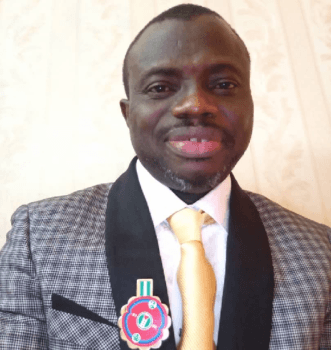(Contd from last edition)
According to the World Health Organisation (WHO), nurses are capable of providing the majority of the care included in the basic package of clinical and public health services with a broad and fundamental role to play, given the knowledge, skills and impact of nursing and midwifery work on the quality, efficiency, and effectiveness of universal healthcare, through the provision of 24 hours service a day and 365 days a year.
Nurses and midwives account for nearly 60 per cent of the global highly-skilled health workforce. Hence, for all countries to achieve SDG number 3 on health and well-being (ensure healthy lives and promote wellbeing for all at all ages) nurses and midwives are the single reliable forces to attain this.
The triple impact of nursing report by the All-Party Parliamentary Group on Global Health (APPG), emphasised that successfully providing universal health coverage requires a strong global nursing presence. A viable nursing profession will yield a “triple impact of improving health, promoting gender equality and supporting economic growth.”

The WHO estimates that the world needs an additional nine million (9,000,000) nurses and midwives by the year 2030. In Nigeria, there is a shortage in supply of nurses and midwives while the ones that are available are either not motivated, or not distributed equitably to enhance proper service delivery.
The shortage in the number of nurses and midwives is largely responsible for the economic and nationwide development challenges. With adequate support, motivation, empowerment and repositioning of Nigerian nurses and midwives, they are prepared to contribute to efficient delivery of UHC and work relentlessly towards attainment of qualitative, safe, accessible, and affordable healthcare services.
It is therefore our resolution that following the global trend, there is the need for collaboration and cooperation within all the arms of government, the worthy professional association, regulatory agencies, and the various MDAs involved in the healthcare delivery system.
Reasons to reposition nursing and midwifery in Nigeria
Globally, repositioning nursing and midwifery has led to improved health care status, where there is freedom of practice at complementing and contributing to healthcare efficiencies. This is achieved through extended roles of nurses and midwives as is the case globally, but being neglected in Nigeria, while our products are performing wonders all over the globe.
However, the government and key stakeholders are invited to note that some challenges need to be given priority attention towards repositioning nursing and midwifery services and personnel to enhance the attainment of UHC goals as a member of the global community.
The Nigerian health profile is a reference point that deserves attention. The Nigerian population is largely disproportionate to the number of nurses and midwives in the country. Primary healthcare services are particularly suffering because of the grossly inadequate number of the professionals.
Nigerians are deprived of the vital services of nurses and midwives in our rural areas and instead of repositioning nursing and midwifery services, less qualified professionals who were only trained to assist nurses and midwives are now being substituted to work in positions of nurses and midwives.
As a group of professionals, we are fully prepared to scale up and review the skill mix of our members to include first-level care providers as being proposed by the Nursing and Midwifery Council of Nigeria (NMCN) to ensure adequate presence of nurses and midwives in all the required underserved areas in Nigeria.
Towards achieving this feat, government policies, collaboration, recognition, basic infrastructures and equipment are required to make this a reality. Nurses and midwives are prepared to mobilise available resources to deliver the best for the Nigerian populace. For about 200 million Nigerians, Nigeria has trained and registered above 300,000 nurses and brain drain is vastly diminishing our nursing and midwifery workforce. Only about one-third of nurses registered by NMCN stay within the country and even these are not totally absorbed in, therefore remaining under-employed and thereby contributing abysmally low input to the Nigeria health services.
The remaining two thirds of nurses trained in Nigeria leave the country for greener pastures after training. For instance, out of 10,000 personnel registered by NMCN, 2,005, 2,536, 3,561 left in 2016, 2017 and 2018 respectively. If the Nigerian environment is conducive, especially with adequate infrastructure, equipment and remuneration, these well-trained nurses would have fewer reasons to exit their fatherland. This development is more disheartening, considering the fact that Nigeria expends huge scarce resources in training nurses for the consumption of the western world who are more economically buoyant.
Recommendations for investment in nursing and midwifery
To address the above challenges, we recommend the following:
● An urgent review of the laws and regulations of nursing and midwifery education and practice in Nigeria.
●Empowerment of the West African College of Nursing, as well as establishment of a National Postgraduate Nursing College.
● An improved commitment to research into nursing, as well as increased role of nurses and midwives in primary level of healthcare delivery.
● Complete absorption of all nurses and midwives trained into employment at all levels of healthcare system in the country.
● Proper placement of nurse interns and graduate nurses to make them to be at par with their contemporaries in the health sector.
● Formulation of policies to increase the roles of nurses and midwives in primary healthcare and abolition of polices that prevent midwives from doing the work they are trained and licensed to do in most of our secondary and tertiary health institutions.
● Provision of modern facilities/equipment and continuous training/capacity-building of staff on new innovations.
● Increased and improved dissemination of effective and innovative practice in nursing with ICT driving the process.
● Involvement of nurses and midwives in policy-formulation and decision-making in the health sector. This will ensure that the impacts of nurses and midwives are felt, and this will help to eradicate certain lapses in the health sector. It is worthy of mention that, at the Federal Ministry of Health, despite having the highest number of skilled manpower in the sector, there is no separate department for nursing services. This lapse creates a healthcare system obstacle.
● Proper reintegration of nurses and midwives in the primary health care programme, with public health nurses being empowered to lead as managers of PHC in Nigeria.
Expected actions from state and federal governments
We particularly request that federal and state authorities consider and graciously grant the full implementation of the Orasanye and Yayale Ahmed committees’ reports on harmony in health sector that recommended the following solutions and implementation strategies:
a. A full-fledged department of nursing at the Federal Ministry of Health.
b. More nurses in position of political appointment.
c. Representation of nurses at top management levels in the health sector.
It is therefore time for the Nigerian government to step up and take decisive actions to invest in their nursing and midwifery workforce. This requires increase in allocation to health budgets, not only increasing numbers but ensuring that nurses and midwives are resourced and supported to meet the world’s healthcare needs.
The WHO has provided a unique opportunity for countries to both demonstrate how much they appreciate their nurses and midwives and to showcase what more nurses and midwives can achieve if given the support to do so.
Florence Nightingale, in the 1870s, wrote that “it would take 100 to 150 years for the world to see the kind of nursing I envision…” It is therefore not a coincidence that 150 years later, the world has declared 2020 the international year of the nurse and midwife and has shifted attention to these profession.
As the NANNM President, our appeal is that now that the entire world is focusing on nursing and midwifery, we should not allow the world to leave us behind, so that our healthcare system can tap from the benefits inherent in investing in nurses and midwives.










generic tadalafil canada – buy real tadalafil online tadalafil generic date